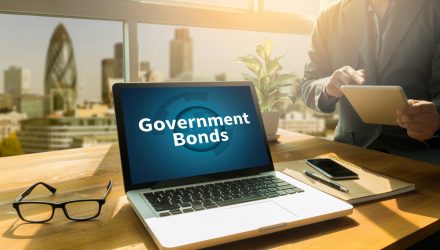The Federal Reserve is doing what it can to shore up the bond markets, but one submarket it shouldn’t forget is municipal bonds. A pandemic recovery could be predicated on how the muni space reacts in a post-coronavirus world.
“The municipal bond market has for decades served as a vehicle for assisting localities in reviving local industries and abandoned facilities by providing incentives for investors to support such high-risk efforts. In this time of a serious economic setback, we see Congress focusing on rescuing existing businesses, which is an appropriate response. There is another response that should be considered,” Richard Lehmann wrote in Forbes.
“Looking into the future, we see an almost universal agreement that we need to restore many products and activities that were off-shored to China,” Lehmann added. “We now recognize that this was a mistake. I’m sure that a reshoring of many critical products will take place over the next few years, but this process can be immensely sped up by involving local governments with municipal bond issuing authority.”
For high-income earners, here are a pair of municipal bond ETFs to consider:
- iShares National Muni Bond ETF (NYSEArca: MUB): seeks to track the investment results of the S&P National AMT-Free Municipal Bond IndexTM. The fund generally will invest at least 90% of its assets in the component securities of the underlying index and may invest up to 10% of its assets in certain futures, options and swap contracts, cash and cash equivalents. The index measures the performance of the investment-grade segment of the U.S. municipal bond market.
- SPDR Nuveen Bloomberg Barclays Short Term Municipal Bond ETF (NYSEArca: SHM): seeks to provide investment results that, before fees and expenses, correspond generally to the price and yield performance of the Bloomberg Barclays Managed Money Municipal Short Term Index. The fund invests substantially all, but at least 80%, of its total assets in the securities comprising the index and in securities that the Sub-Adviser determines have economic characteristics that are substantially identical to the economic characteristics of the securities that comprise the index. The index tracks the short term tax-exempt municipal bond market and provides income that is exempt from federal income taxes.
for investors looking to get in on the corporate bond action, they can consider the Goldman Sachs Access Investment Grade Corporate Bond ETF (GIGB). GIGB seeks to provide investment results that closely correspond to the performance of the FTSE Goldman Sachs Investment Grade Corporate Bond Index.
The fund seeks to achieve its investment objective by investing at least 80% of its assets (exclusive of collateral held from securities lending) in securities included in its underlying index. The index is a rules-based index that is designed to measure the performance of investment-grade, corporate bonds denominated in U.S. dollars that meet certain liquidity and fundamental screening criteria.
For more market trends, visit ETF Trends.








